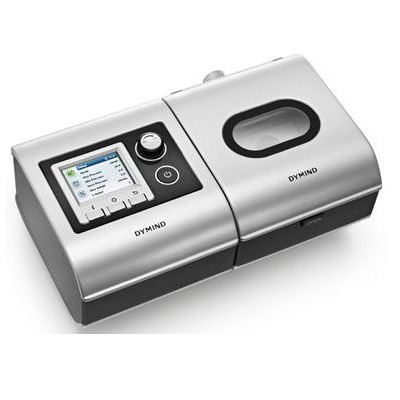Drone Delivery System Transports Samples Between Hospitals
|
By HospiMedica International staff writers Posted on 05 Jun 2019 |

Image: A drone making a delivery in Zurich (Photo courtesy of Swiss Post).
Swiss Post (Bern, Switzerland) is laying out a drone delivery system to convey laboratory samples between hospitals that will arrive function twice as fast as road transport.
A pilot study, carried out in collaboration with the Federal Office of Civil Aviation, Skyguide, which monitors Swiss airspace, and local authorities, will use the drones to transport urine and blood samples five to ten times a day between University Hospital Zürich (USZ; Switzerland) and the USZ Irchel campus, which are 2.5 kilometers apart. The time savings are expected to help patients, for example those under anesthesia, waiting for laboratory results.
Similar pilot studies were carried out in Lugano between Ospedale Italiano and the Ospedale Civico, two hospitals belonging to the EOC group, which are also located 600 meters apart. The pilot study, which began in March 2017, conducted 2,100 flights without any problems. And as of December 2018, Swiss Post regularly transports lab samples across the Zurich lake basin on behalf of Zentrallabor Zürich. The route, which is 5.8 kilometers long, crosses Lake Zurich to link the ZLZ emergency laboratory at Hirslanden Klinik Im Park with the main lab in Zollikon, and is five times faster than conventional road transport.
“All findings from the various drone projects are of central importance and enable procedures to be improved. Swiss Post not only wants to know how beneficial these drones are to hospitals and labs, but also how residents are responding,” stated Swiss Post spokesman Olivier Flüeler. “Experiences gained in Lugano, Bern, and Zurich are good. The drones are flying for medical purposes since consignments in this sector are often urgent, and the speed at which they are delivered can be crucial. This is why they are generally widely accepted.”
Swiss Post has also started experimenting with other futuristic delivery methods. In September 2016 it sent small, autonomous robots out onto city pavements and pedestrian zones to deliver packages in a series of tests authorized by Switzerland’s Federal Roads Office. The robots were designed to deliver special mailings, including packages that require flexible, rapid local delivery, such as food or medicine. The tests, conducted in Bern, Köniz, and Biberist, were the result of a partnership with British company Starship Technologies.
Related Links:
Swiss Post
University Hospital Zürich
A pilot study, carried out in collaboration with the Federal Office of Civil Aviation, Skyguide, which monitors Swiss airspace, and local authorities, will use the drones to transport urine and blood samples five to ten times a day between University Hospital Zürich (USZ; Switzerland) and the USZ Irchel campus, which are 2.5 kilometers apart. The time savings are expected to help patients, for example those under anesthesia, waiting for laboratory results.
Similar pilot studies were carried out in Lugano between Ospedale Italiano and the Ospedale Civico, two hospitals belonging to the EOC group, which are also located 600 meters apart. The pilot study, which began in March 2017, conducted 2,100 flights without any problems. And as of December 2018, Swiss Post regularly transports lab samples across the Zurich lake basin on behalf of Zentrallabor Zürich. The route, which is 5.8 kilometers long, crosses Lake Zurich to link the ZLZ emergency laboratory at Hirslanden Klinik Im Park with the main lab in Zollikon, and is five times faster than conventional road transport.
“All findings from the various drone projects are of central importance and enable procedures to be improved. Swiss Post not only wants to know how beneficial these drones are to hospitals and labs, but also how residents are responding,” stated Swiss Post spokesman Olivier Flüeler. “Experiences gained in Lugano, Bern, and Zurich are good. The drones are flying for medical purposes since consignments in this sector are often urgent, and the speed at which they are delivered can be crucial. This is why they are generally widely accepted.”
Swiss Post has also started experimenting with other futuristic delivery methods. In September 2016 it sent small, autonomous robots out onto city pavements and pedestrian zones to deliver packages in a series of tests authorized by Switzerland’s Federal Roads Office. The robots were designed to deliver special mailings, including packages that require flexible, rapid local delivery, such as food or medicine. The tests, conducted in Bern, Köniz, and Biberist, were the result of a partnership with British company Starship Technologies.
Related Links:
Swiss Post
University Hospital Zürich
Channels
Critical Care
view channel
Light-Based Technology to Measure Brain Blood Flow Could Diagnose Stroke and TBI
Monitoring blood flow in the brain is crucial for diagnosing and treating neurological conditions such as stroke, traumatic brain injury (TBI), and vascular dementia. However, current imaging methods like... Read more
AI Heart Attack Risk Assessment Tool Outperforms Existing Methods
For decades, doctors have relied on standardized scoring systems to assess patients with the most common type of heart attack—non-ST-elevation acute coronary syndrome (NSTE-ACS). The GRACE score, used... Read moreSurgical Techniques
view channel
Minimally Invasive Endoscopic Surgery Improves Severe Stroke Outcomes
Intracerebral hemorrhage, a type of stroke caused by bleeding deep within the brain, remains one of the most challenging neurological emergencies to treat. Accounting for about 15% of all strokes, it carries... Read more
Novel Glue Prevents Complications After Breast Cancer Surgery
Seroma and prolonged lymphorrhea are among the most common complications following axillary lymphadenectomy in breast cancer patients. These postoperative issues can delay recovery and postpone the start... Read morePatient Care
view channel
Revolutionary Automatic IV-Line Flushing Device to Enhance Infusion Care
More than 80% of in-hospital patients receive intravenous (IV) therapy. Every dose of IV medicine delivered in a small volume (<250 mL) infusion bag should be followed by subsequent flushing to ensure... Read more
VR Training Tool Combats Contamination of Portable Medical Equipment
Healthcare-associated infections (HAIs) impact one in every 31 patients, cause nearly 100,000 deaths each year, and cost USD 28.4 billion in direct medical expenses. Notably, up to 75% of these infections... Read more
Portable Biosensor Platform to Reduce Hospital-Acquired Infections
Approximately 4 million patients in the European Union acquire healthcare-associated infections (HAIs) or nosocomial infections each year, with around 37,000 deaths directly resulting from these infections,... Read moreFirst-Of-Its-Kind Portable Germicidal Light Technology Disinfects High-Touch Clinical Surfaces in Seconds
Reducing healthcare-acquired infections (HAIs) remains a pressing issue within global healthcare systems. In the United States alone, 1.7 million patients contract HAIs annually, leading to approximately... Read moreBusiness
view channel
Philips and Masimo Partner to Advance Patient Monitoring Measurement Technologies
Royal Philips (Amsterdam, Netherlands) and Masimo (Irvine, California, USA) have renewed their multi-year strategic collaboration, combining Philips’ expertise in patient monitoring with Masimo’s noninvasive... Read more
B. Braun Acquires Digital Microsurgery Company True Digital Surgery
The high-end microsurgery market in neurosurgery, spine, and ENT is undergoing a significant transformation. Traditional analog microscopes are giving way to digital exoscopes, which provide improved visualization,... Read more
CMEF 2025 to Promote Holistic and High-Quality Development of Medical and Health Industry
The 92nd China International Medical Equipment Fair (CMEF 2025) Autumn Exhibition is scheduled to be held from September 26 to 29 at the China Import and Export Fair Complex (Canton Fair Complex) in Guangzhou.... Read more














